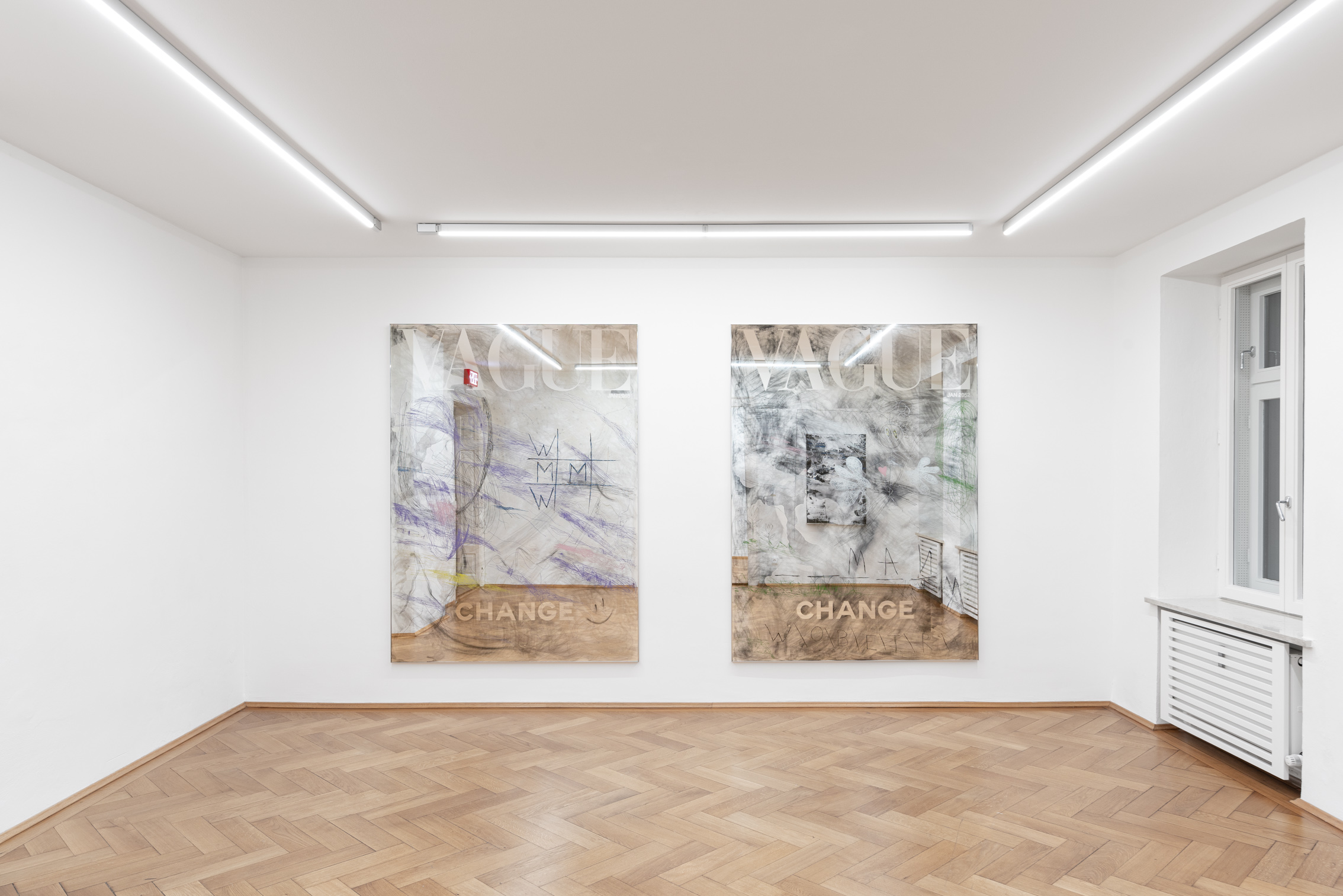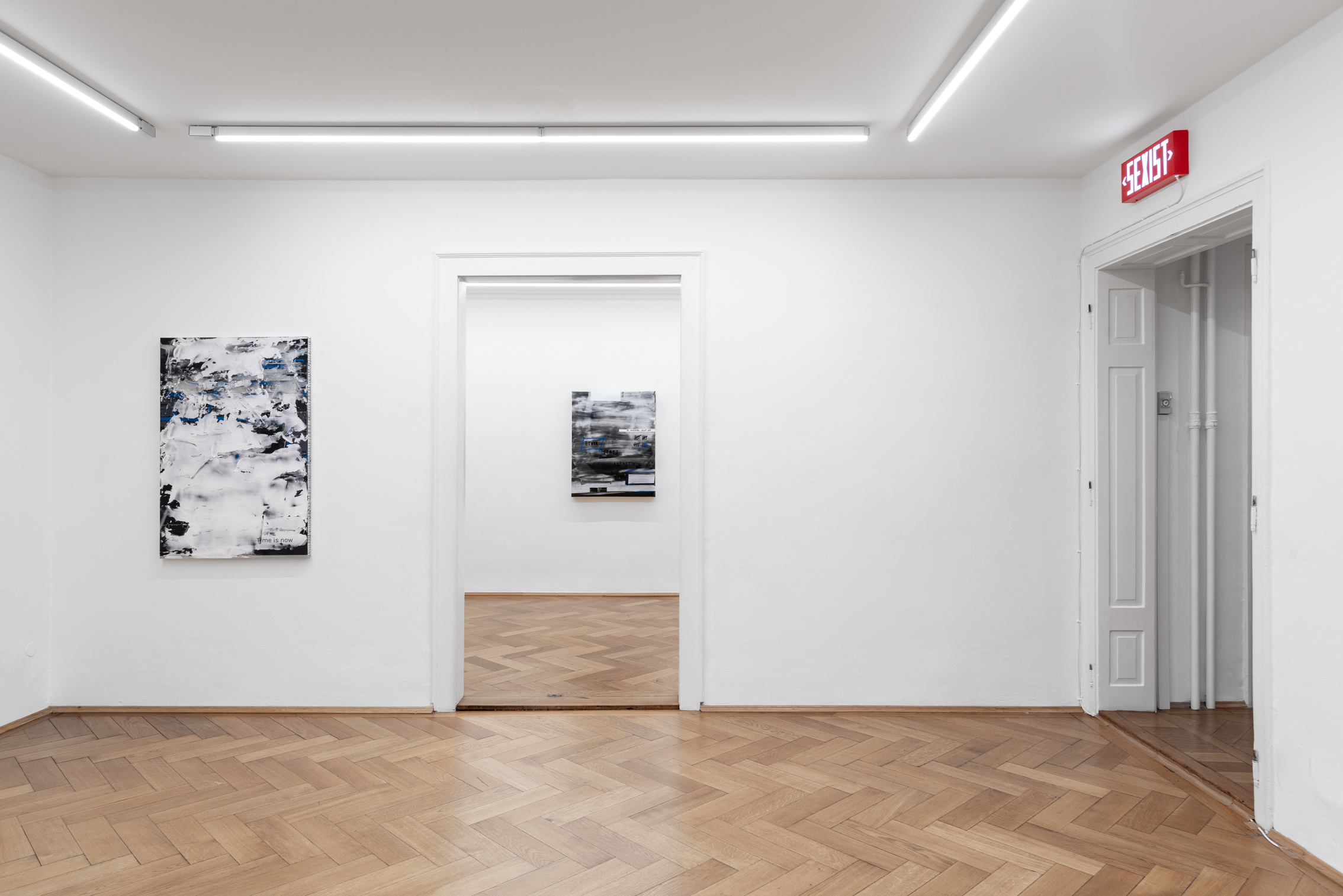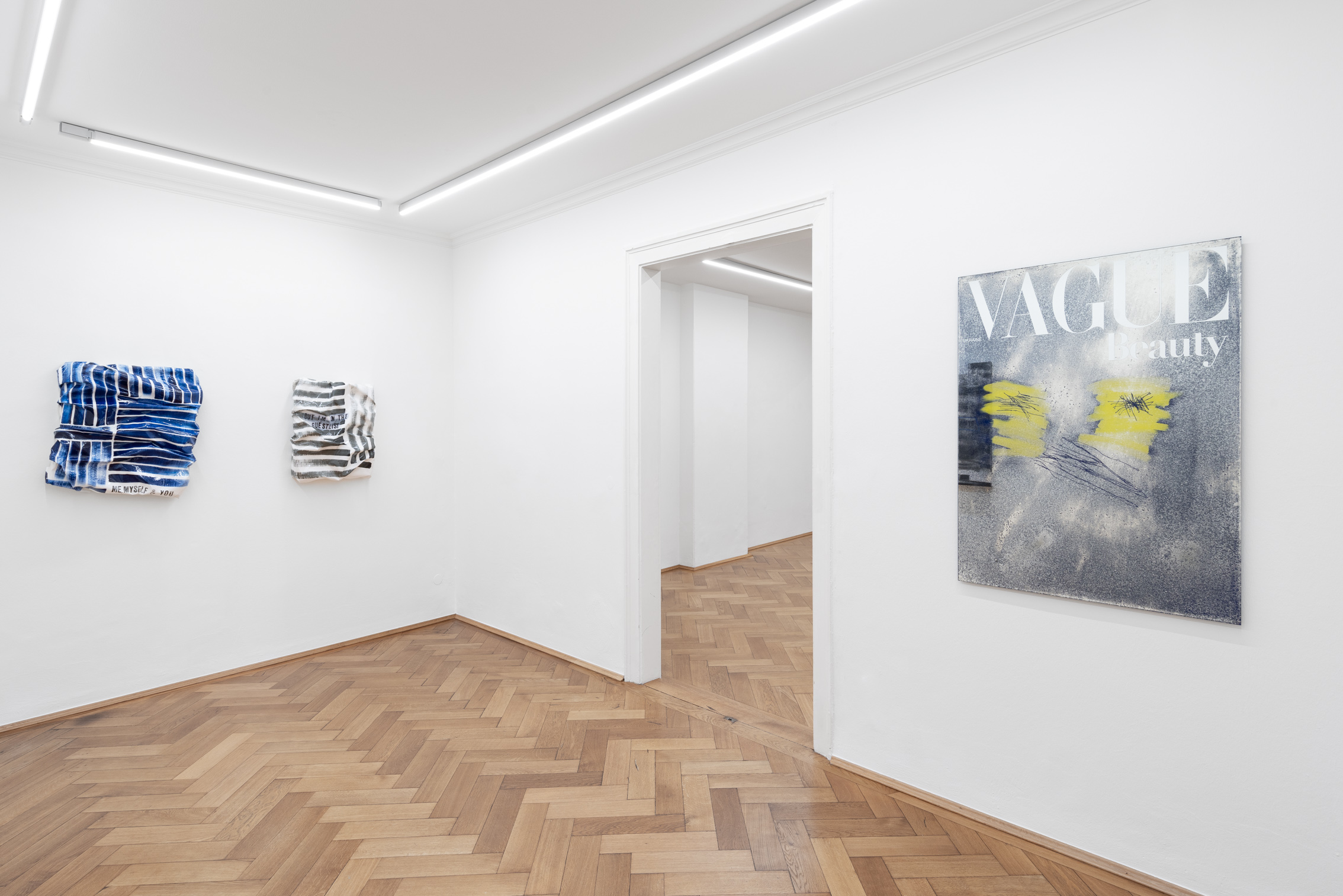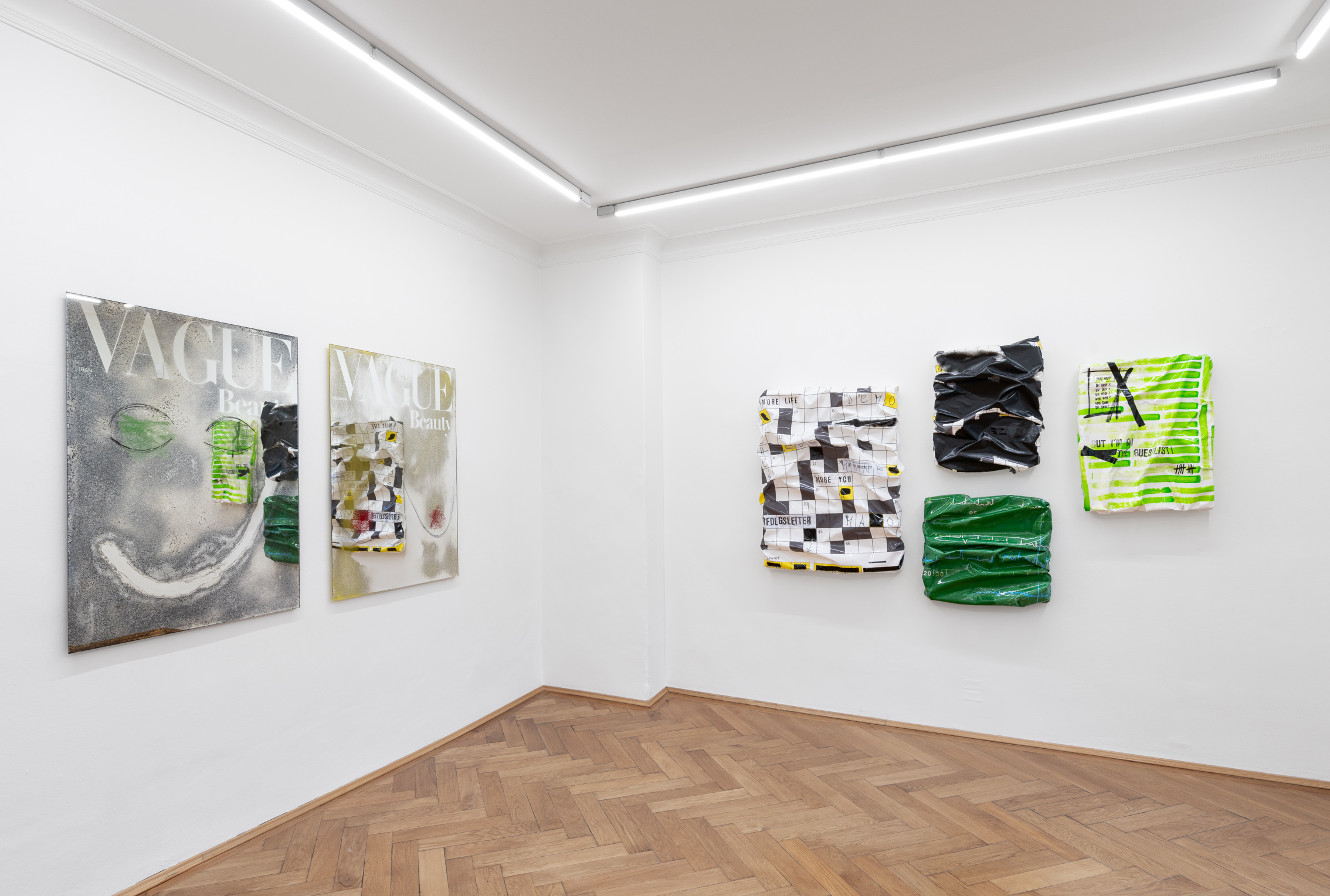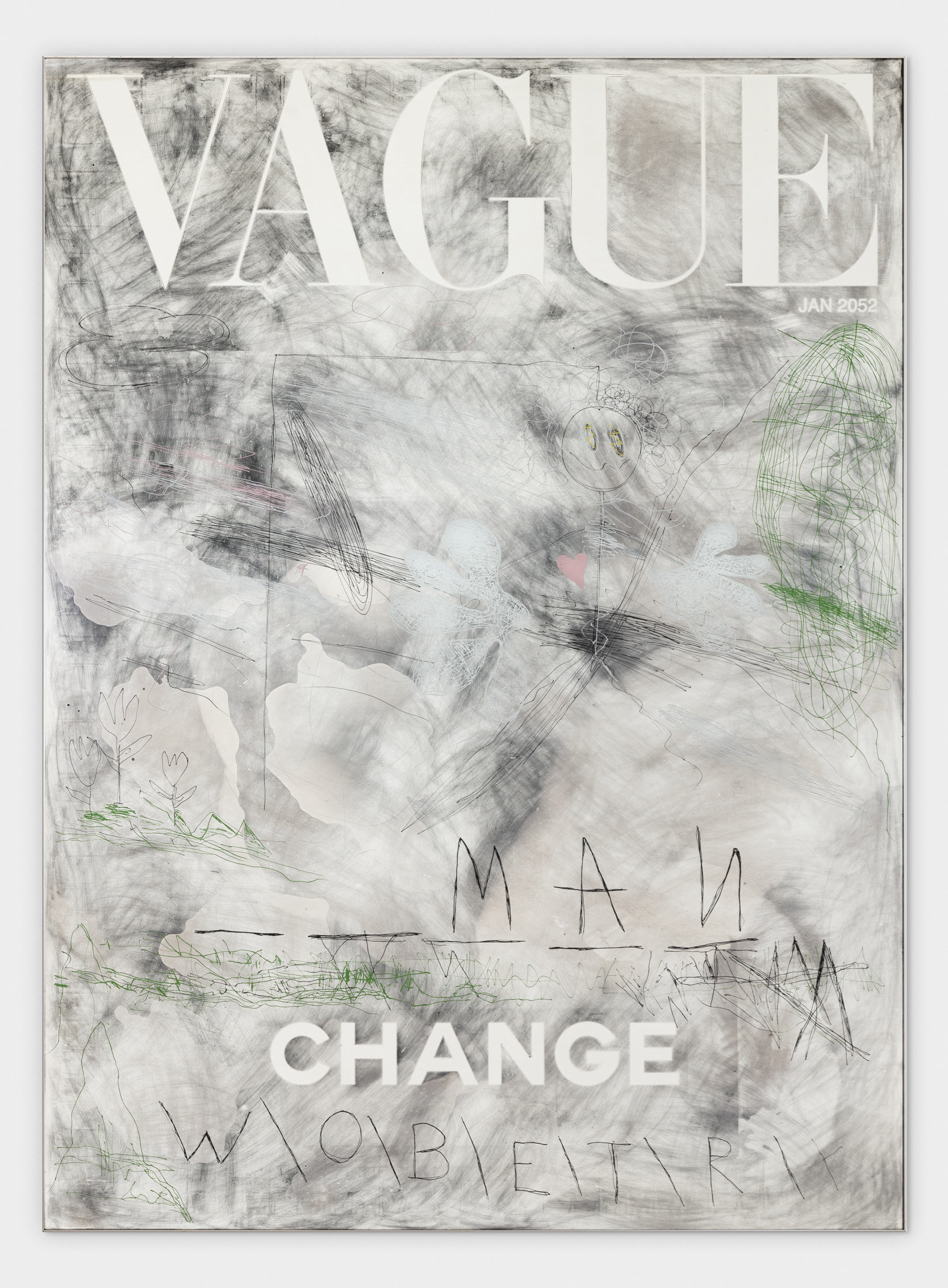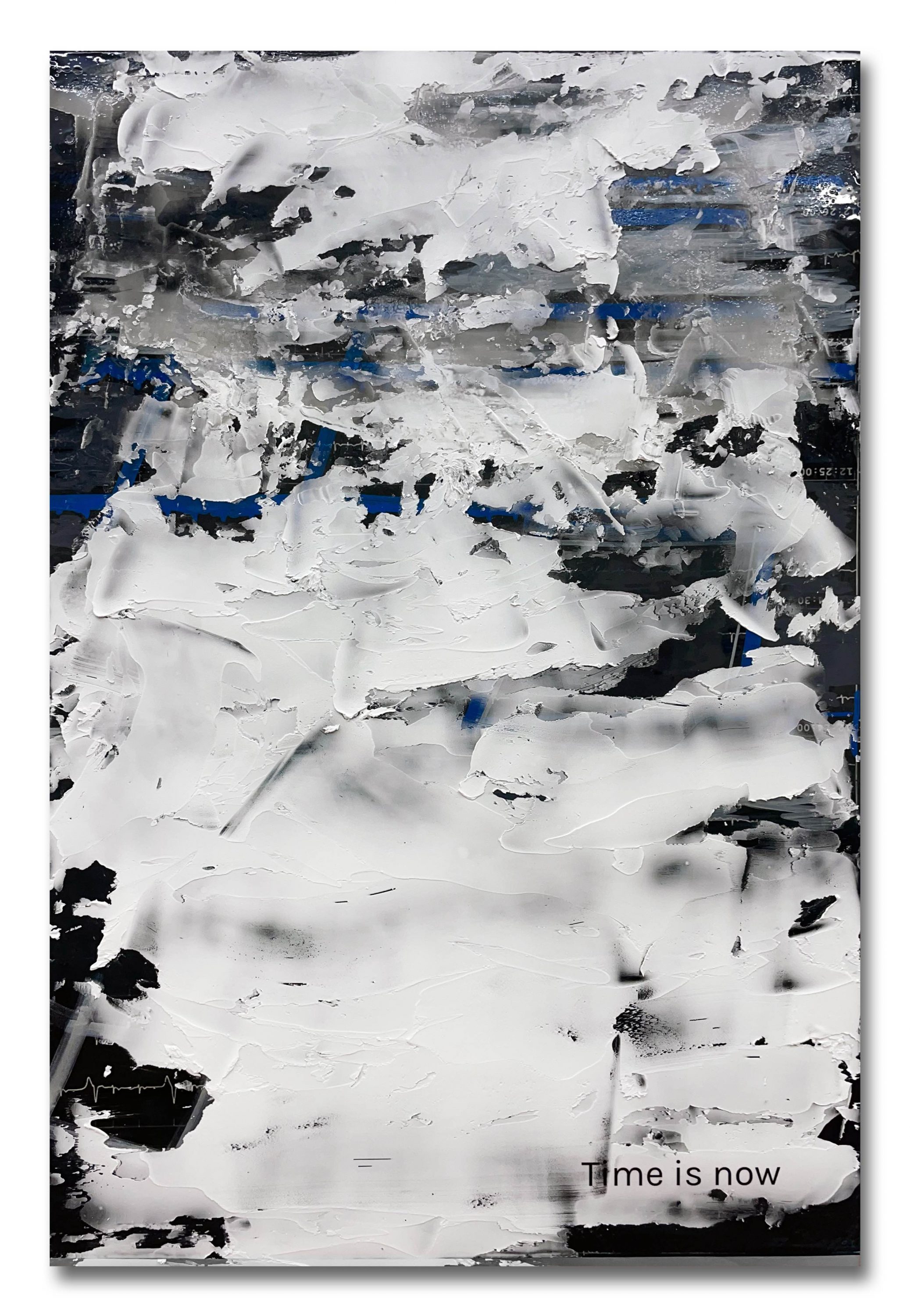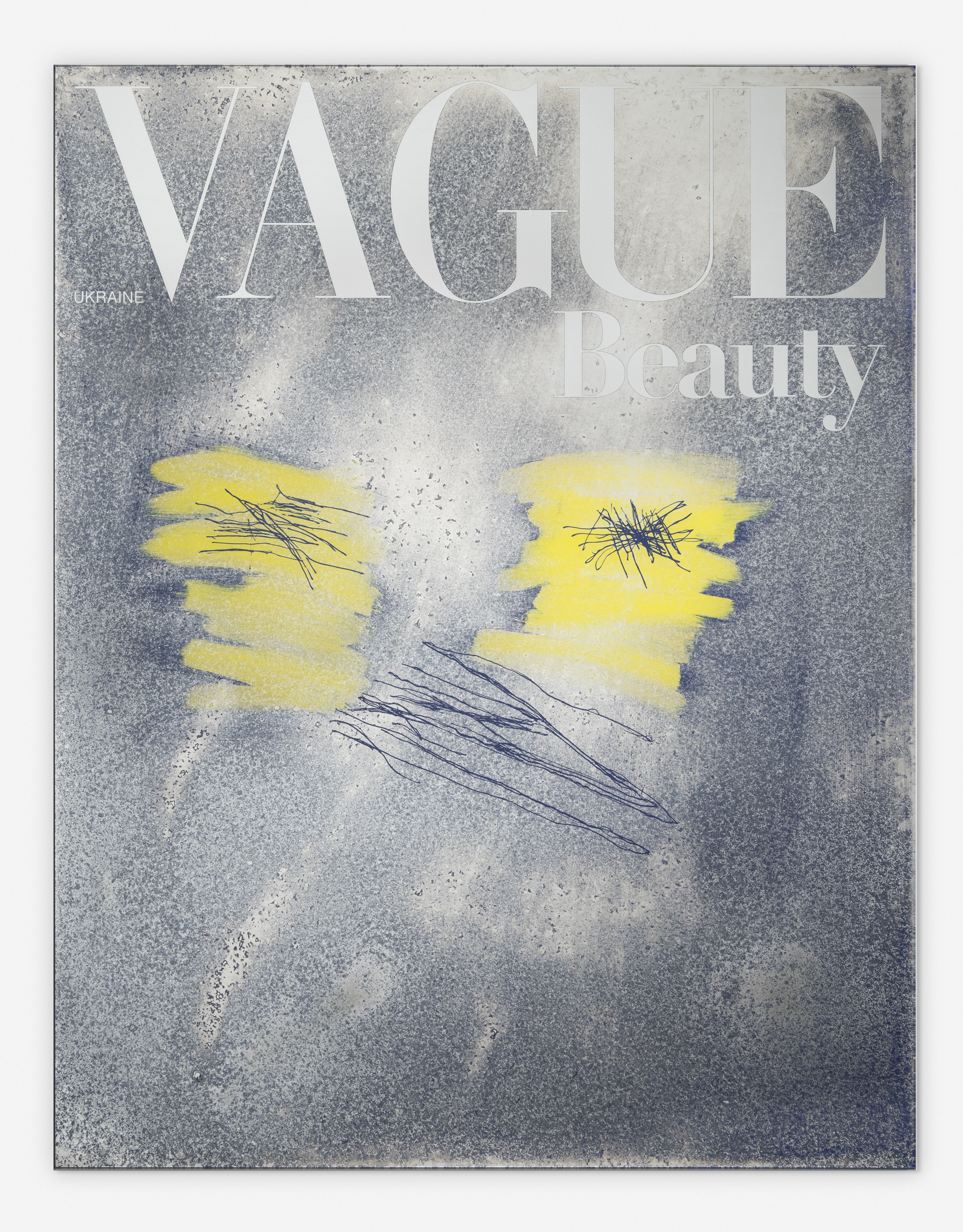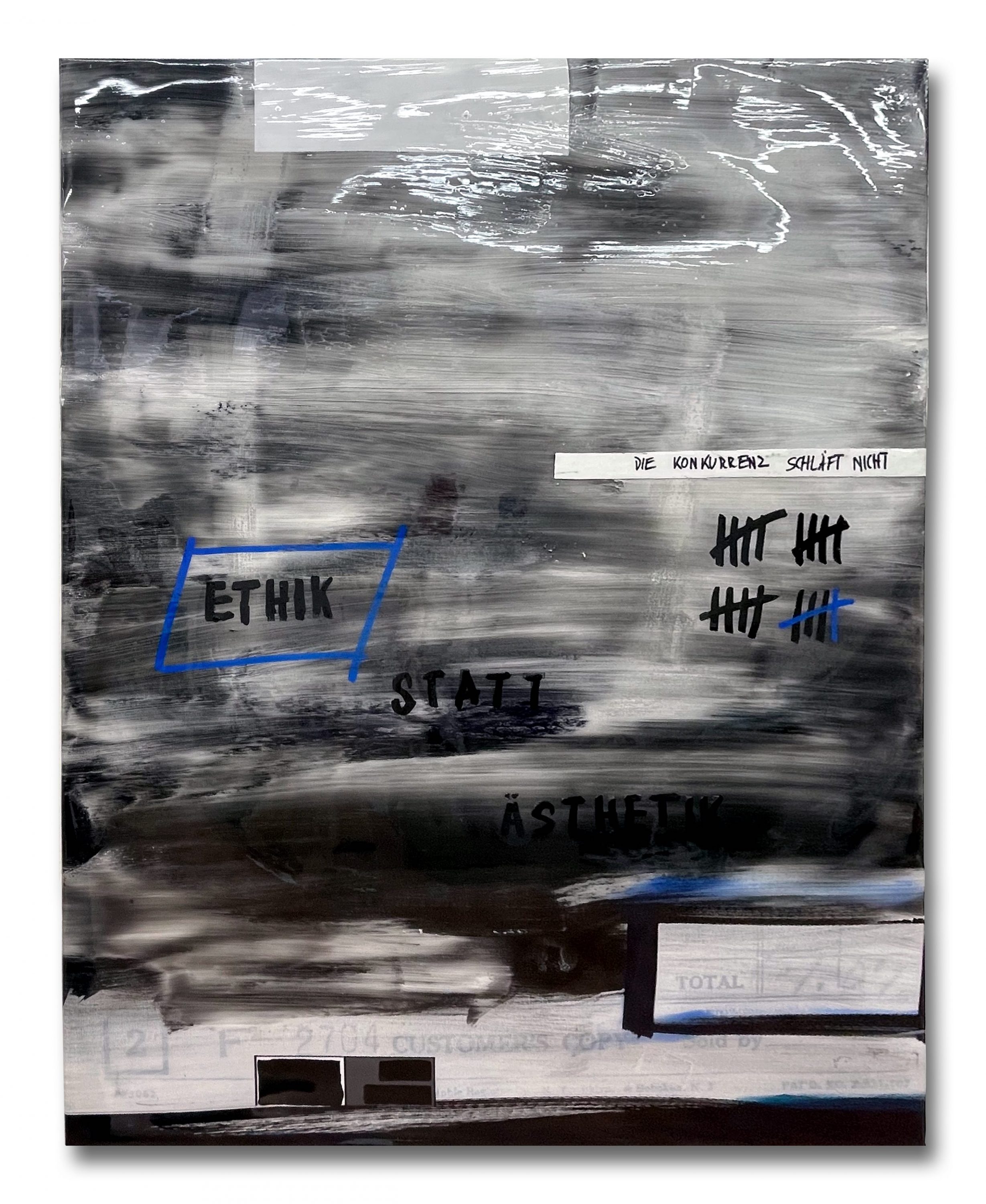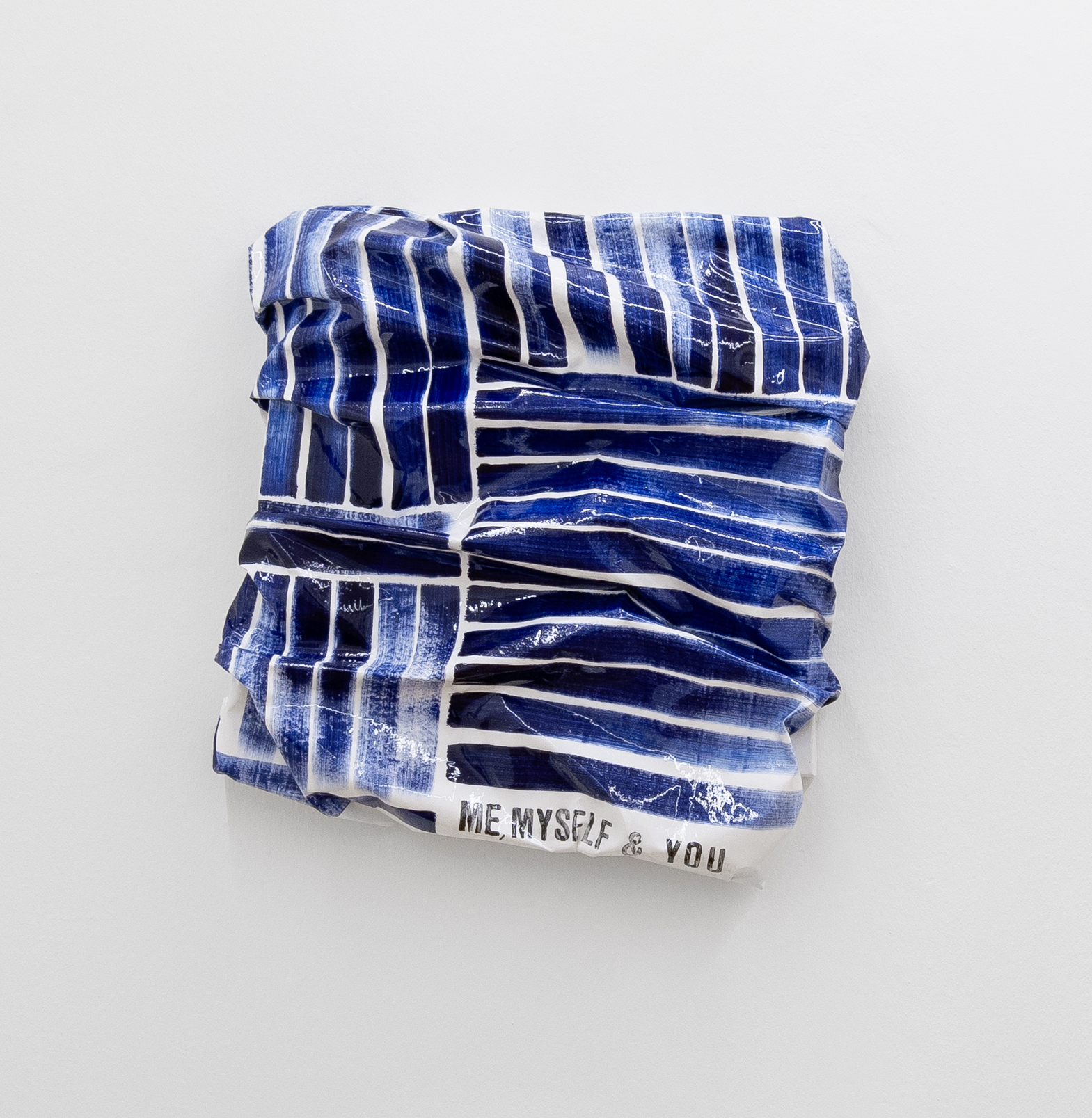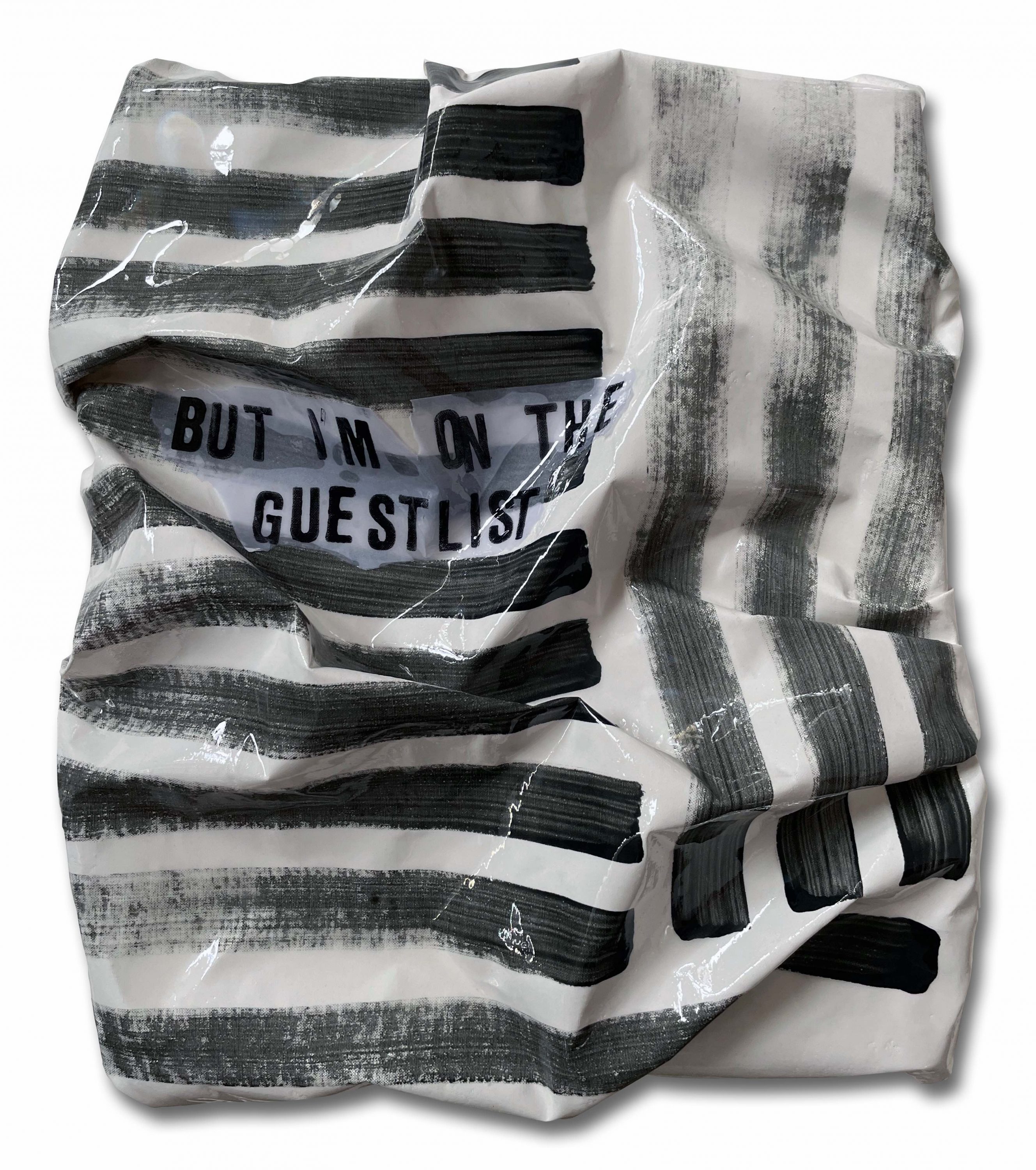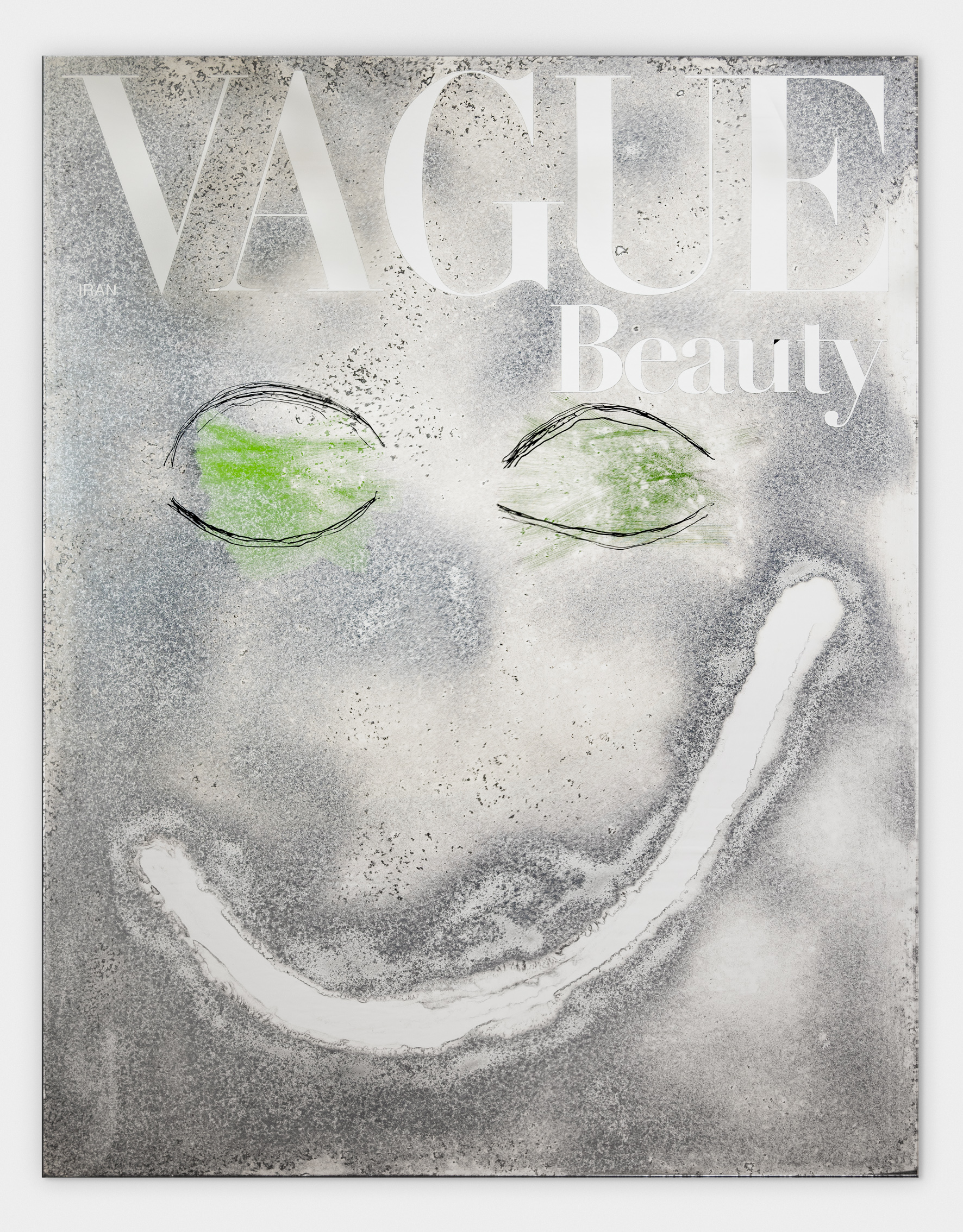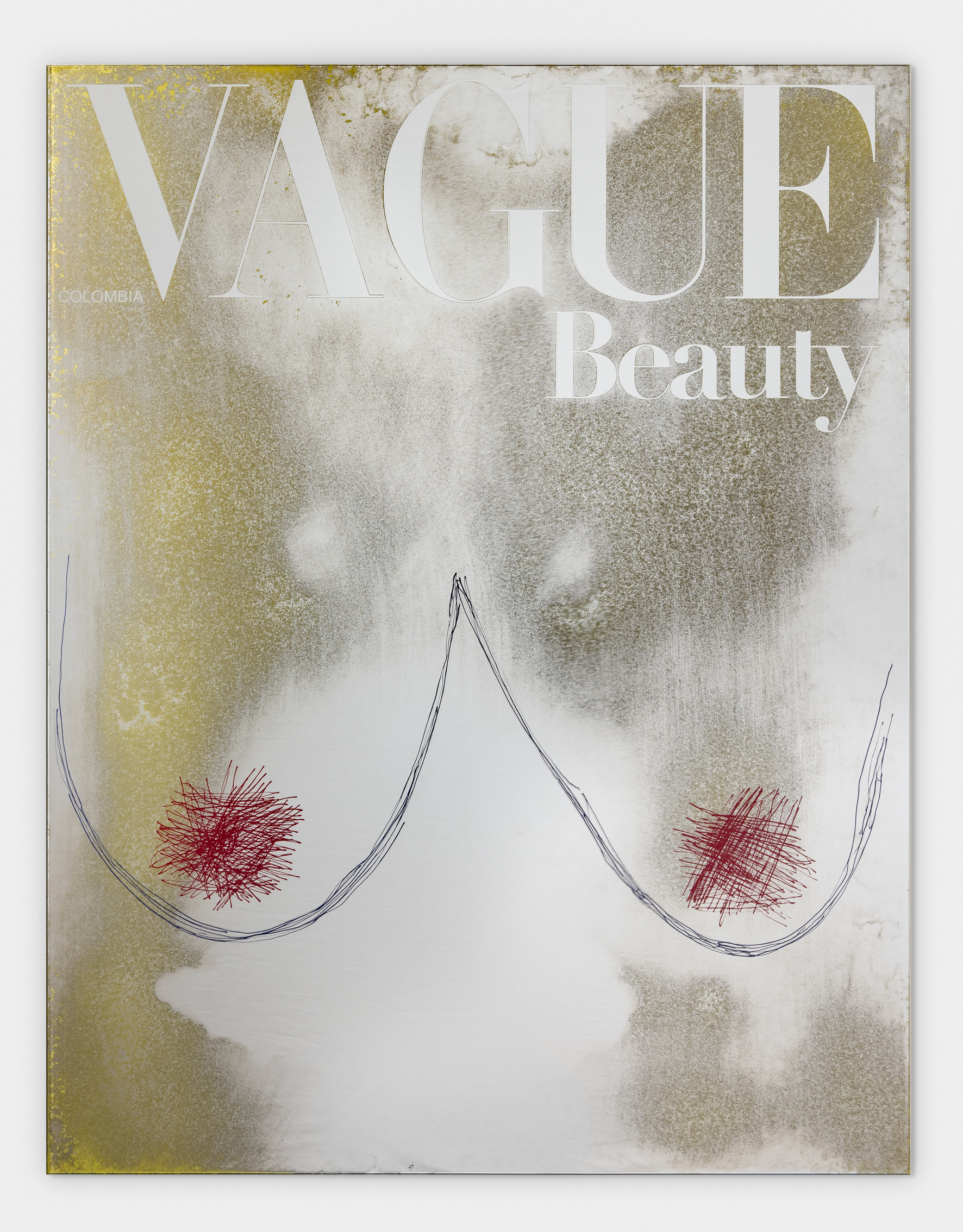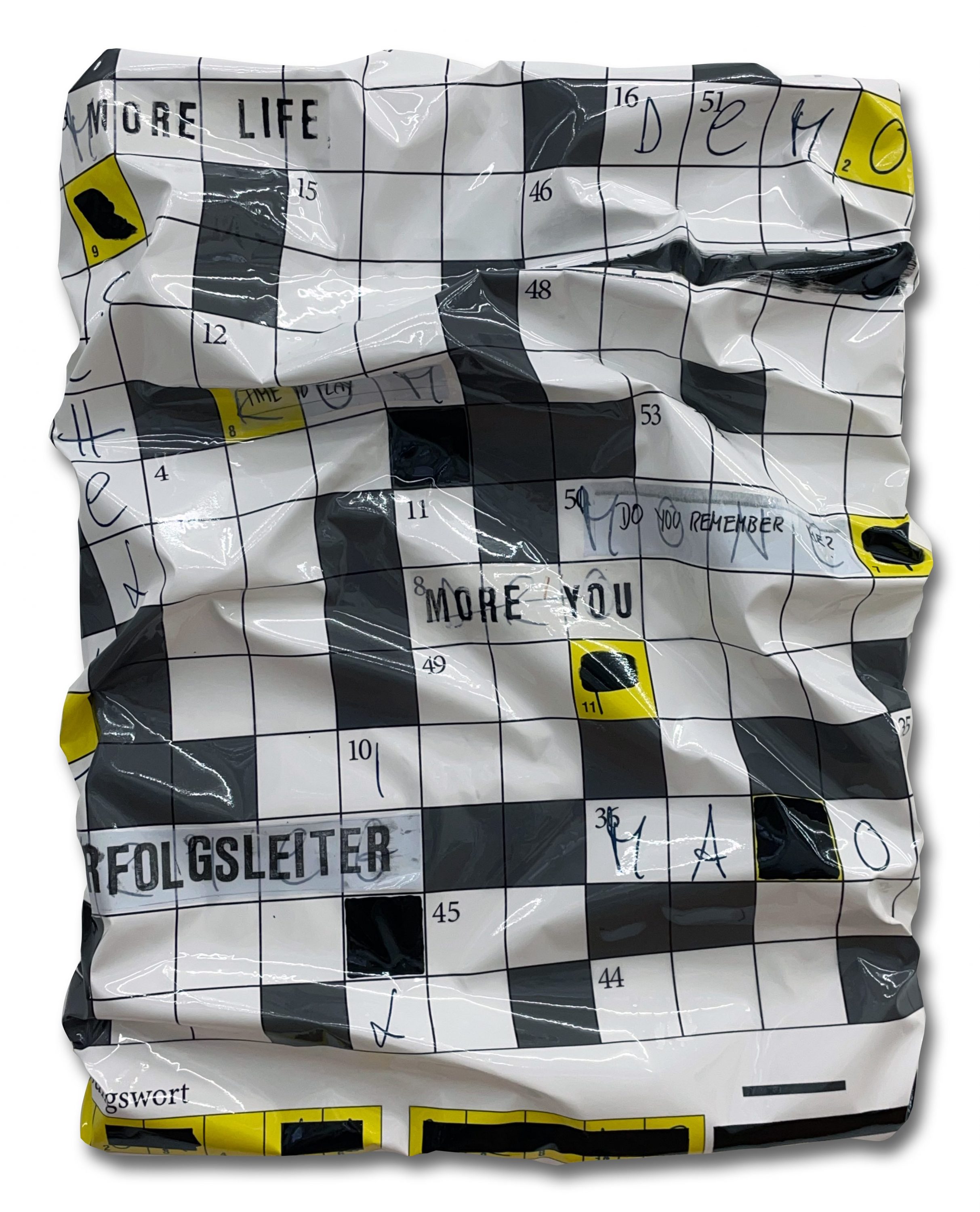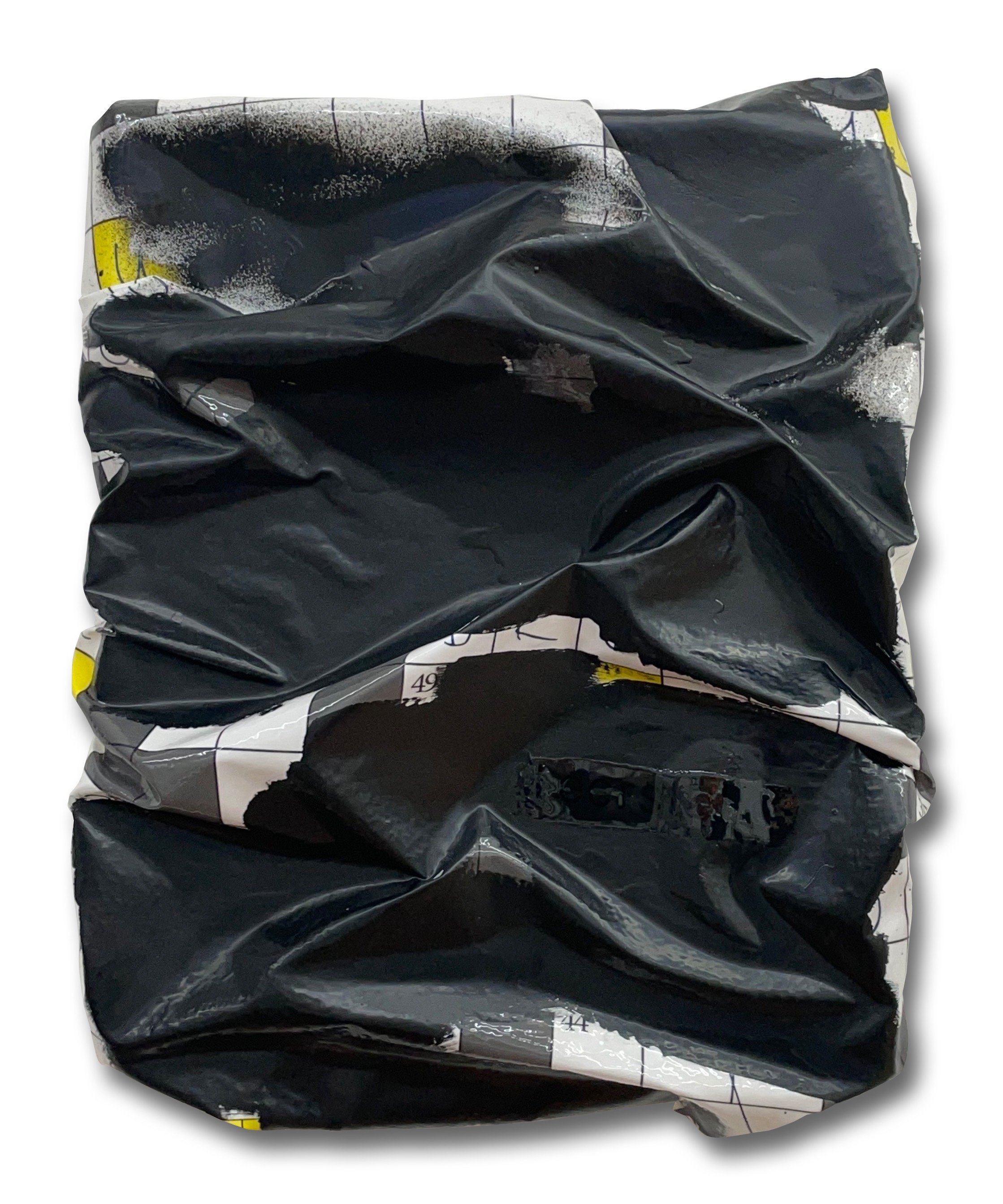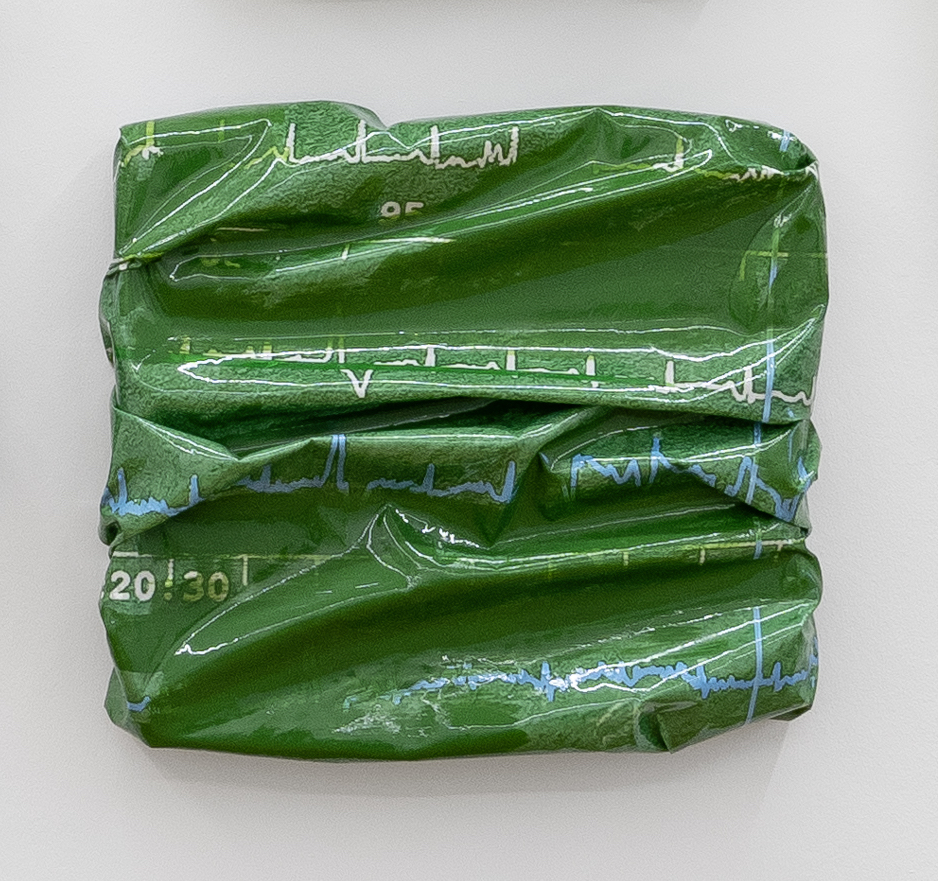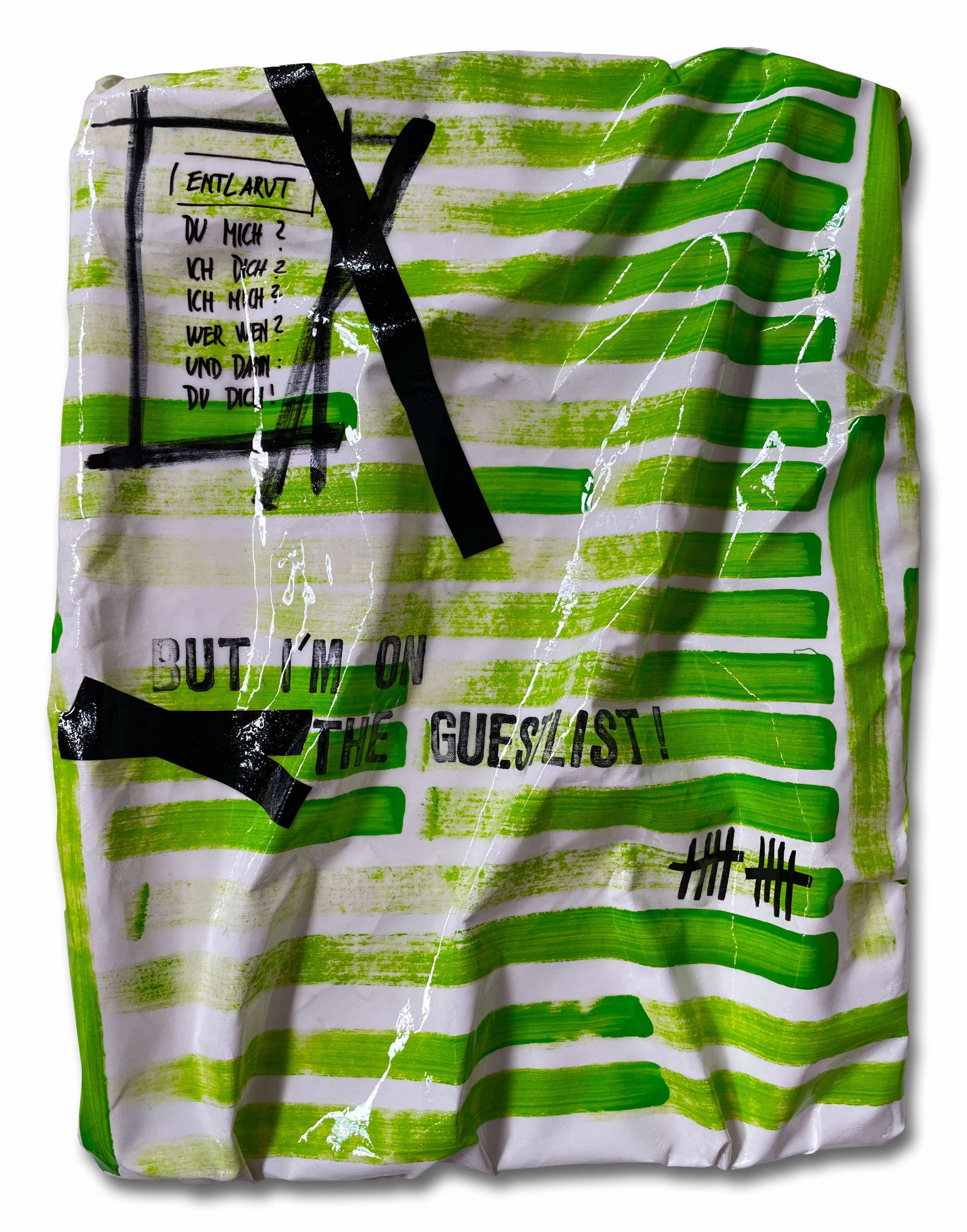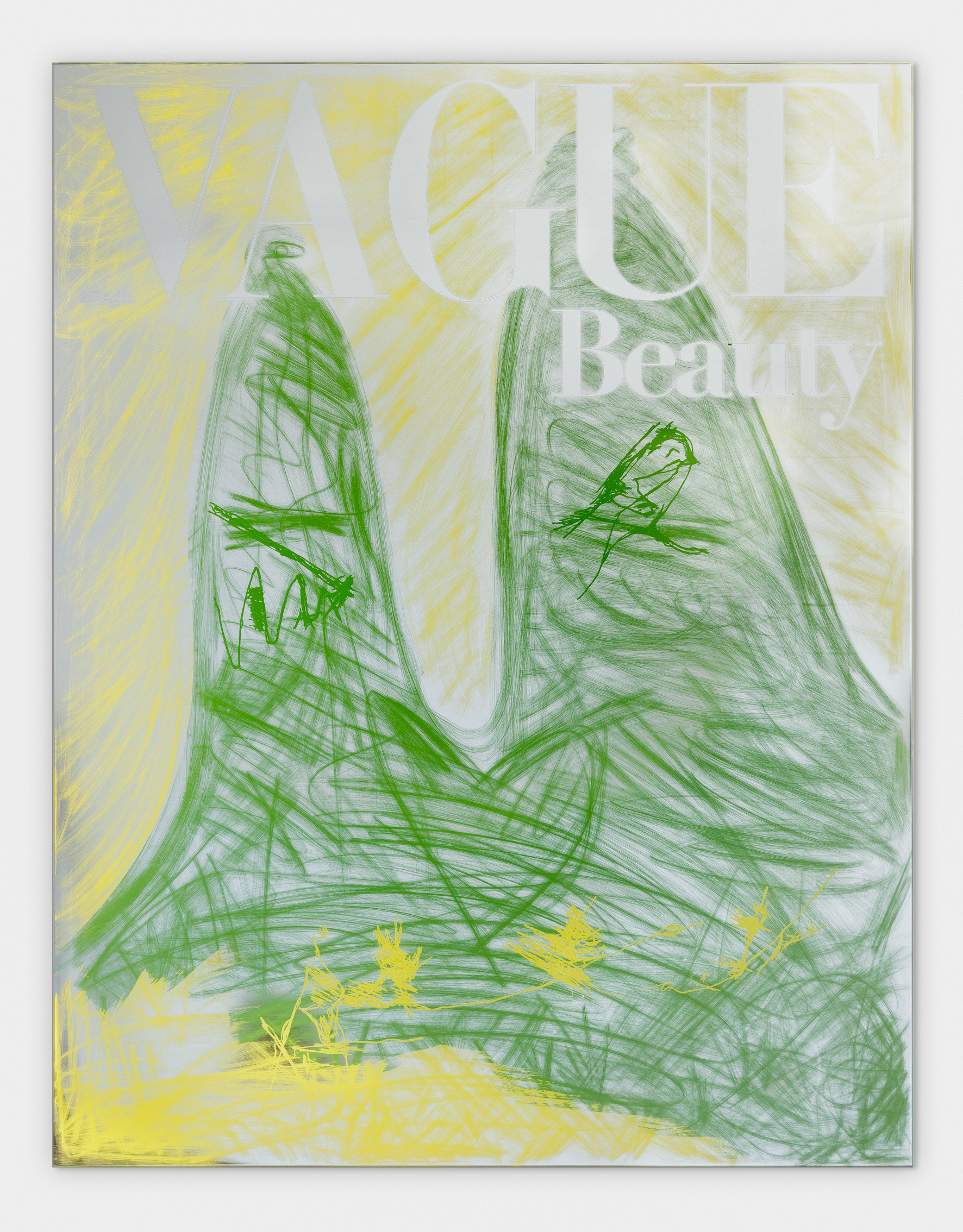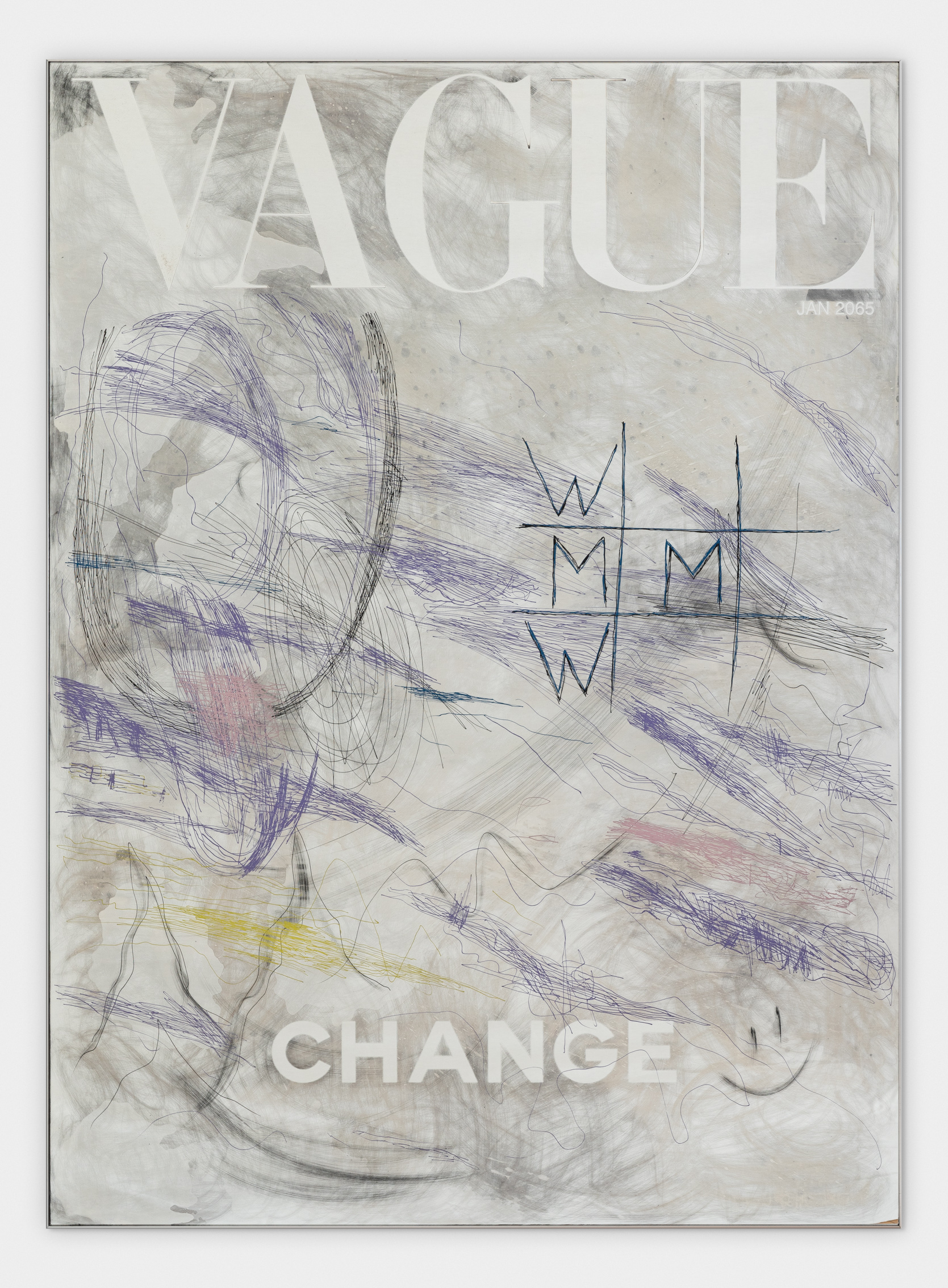
The past, present, and, quite paradoxically, the future can certainly inform an artist’s oeuvre. Like cultural sociologists on the hunt, Caro Jost (Munich) and Olga Migliaressi-Phoca (Athens) roam their surroundings and create bold statements about society at large. The public sphere is their field of action and source of inspiration and society their backdrop. Appropriating found objects, text, and mundane subjects encountered all around them, their work offers a study of our social and cultural milieu through subtle but at the same time potent manifestations.
Caro Jost’s work is informed by the past and sets out to document time, space, and memories–in essence, the ephemeral–presenting them within a contemporary context. The foundation of her work is rooted in systematic research and archiving, something she owes in part to her background as a law student. With the thoroughness of an investigator, Jost surveys the space around her, identifies her subjects, and, with the patience and care of an archivist, preserves them in an archive that she has meticulously put together over the years. Jost’s treasury of items, a cabinet de curiosités of sorts, is where she places in safekeeping the items that will eventually be appropriated and manipulated into evocative artworks of social relevance.
Her fascination with the history and stories that even the tritest of objects can carry, led Jost to explore the former studios of the Abstract Expressionist painters, who were active in the 1950s and 1960s and for whom Jost has a special affinity. A byproduct of this research–which uncovered material such as personal documents, invoices, and sketches–and part of the ongoing series “Invoice Paintings”, Notes A.R. (2017, 2020) are composed of printouts of handwritten notes belonging to artist Ad Reinhardt. Reminiscent of a filled-out crossword puzzle, these notes were fundamental in the creation of Reinhardt’s famed, seemingly monochromatic “black paintings” (1954-1967). By appropriating these finds onto canvas, Jost manages to monumentalize them and immortalize the past, giving us a glimpse into history. Just like Reinhardt’s “black paintings” were created with the application of layers upon layers of paint, Notes A.R. are themselves partially covered in bold strokes of color.
Jost’s work is not limited to the use of tangible found objects and marginal items. Rather, her interest in the power of words has prompted her to make use of excerpts from magazines, essays, newspaper headlines, and even snippets of conversation overheard in the street. These text fragments, which are testaments of a specific era and a particular zeitgeist, are removed from their original source and context and become the basis for works such as Me, Myself and You (2023). Once transferred onto canvas, certain words in the selected text are painted over and concealed with thick lines. The text’s original message is thus deconstructed, giving way to novel catchphrases that are socially relevant to the now. The resulting works stand as chronicles of the past and, at the same time, offer reflections and commentaries on the present.
Included in Snakes & Ladders is the latest series of works by Jost, more commonly known as the “heartbeat paintings”. A quintessentially autobiographical body of work that interweaves the public with the personal and the past with the present, these works use the artist’s heart rate charts as templates that are either superimposed or freely painted on canvas. Juxtaposed with text and in some cases coated with paint, works like Time Beats Time (2023) and All Inclusive (2023) become means for public self-reflection and introspection. At the same time, as records of Jost’s pulse rate, they succeed in capturing the ephemerality of time and narratives making them both enigmatically timeless.
The systematic research that characterizes Jost’s methodology as an artist goes beyond her pursuit of subjects and extends to the innovative techniques that she employs in her practice, techniques that she has diligently experimented with and developed over time. While Jost’s work is embedded in the tradition of painting and collage, the techniques she resorts to bring about works with layered compositions and, inevitably, with layered messages. Reworked with resin, her works break from the two-dimensionality of painting and become relief paintings with textured compositions. The folds that are characteristic of her works give them a sense of movement and make them seem almost fluid, like time itself.
While Caro Jost’s work looks into the past, Olga Migliaressi-Phoca’s examines the present. Her work is informed by a Pop aesthetic where instantly recognizable signs and symbols are appropriated and, infested with a pinch of irony and sarcasm, are presented anew. In a witty manner, Migliaressi-Phoca manipulates the familiar to address issues of urgency and challenge societal notions that are considered, more often than not, taboo. Looking at consumer culture, Migliaressi-Phoca engages in a play with words by revisiting iconic logos of popular brands and reintroducing them as whimsical yet thought-provoking anagrams.
Migliaressi-Phoca’s work included in Snakes & Ladders touches upon matters of gender (in)equality and examines the position of women in today’s society. Two large mirror pieces representing covers of the fictional Vague magazine, look into the future only to ponder how such gender matters will be perceived in years to come and whether they will still be a topic of discussion or an issue of the past. Part of the ongoing series “The Future Is Vague”, the cover stories go a step further to celebrate the centenary of two landmark events: the 1952 granting of the right to vote to all women in Greece, and the 1965 establishment of the Voting Right Act by which women’s rights in the U.S. were more fully realized. But will we really be able to commemorate such historic advancements towards gender equality in the future? Or could the unfinished games of Tic-Tac-Toe and Hangman prominently featured on the covers of Vague embody prescient indicators alluding to the vagueness and uncertainty that lie ahead when it comes to gender discords?
The mirror, both as a subject and as a medium, has been imbued with meaning and has been considered a vehicle for self-perception since Classical Antiquity. Migliaressi-Phoca uses the mirror as her canvas, manipulating and “vandalizing” its surface with etchings to create compelling narratives. The mirror’s reflective surface, believed to reveal and uphold truths, manages to bring the viewers into the spotlight and, by challenging their perspectives, encourages them to reflect upon their own stance on the politics of gender equality and become active participants in the dialogue. Part painting, part sculpture, part collage, and part installation, Migliaressi-Phoca’s work fosters interactions and, as a catalyst for cultural change, calls for the visitor’s attention on gender and identity issues.
As an extension to “The Future is Vague”, Migliaressi-Phoca introduces the “Vague – Beauty” series. Presented for the very first time, these smaller mirror pieces explore the different female beauty standards around the world, offering a commentary on society’s expectations of women and the burdening, often unrealistic, and barely achievable stereotypes they “have” to adhere to. Following in the genre of portrait painting, Migliaressi-Phoca creates stylized representations of body parts that are characterized by a childlike simplicity in their execution. The conceptual renderings that are incised on the covers of the Vague Beauty issues look unassuming at first but, in reality, stand as bold, critical readings on gender identity. Similarly, probably the most confrontational piece by Migliaressi-Phoca included in the exhibition, Get the Hell Out (2020) appropriates the universally recognizable EXIT sign found in public buildings into audacious statements against gender prejudice. Strategically placed in the gallery space towards the nearest exit, the cunning SEXIST sign persistently ushers individuals adhering to bigoted attitudes towards the way out.
Snakes & Ladders marks the first joint presentation of works by Caro Jost and Olga Migliaressi-Phoca. While working in different media, their work complements each other in their reflection and commentary on issues of social and personal significance. With an air of playfulness and employing their personal, distinctive touch, Jost and Migliaressi-Phoca manage to create works that are full of cultural resonance.
Regina Alivisatos received her BA in Art History from Tufts University in Boston and her MA in Art Business from Sotheby’s Institute of Art, London. Since 2007, she has been working at the DESTE Foundation for Contemporary Art, Athens. Prior to this, she was at Deutsche Bank’s Art Department in London.


